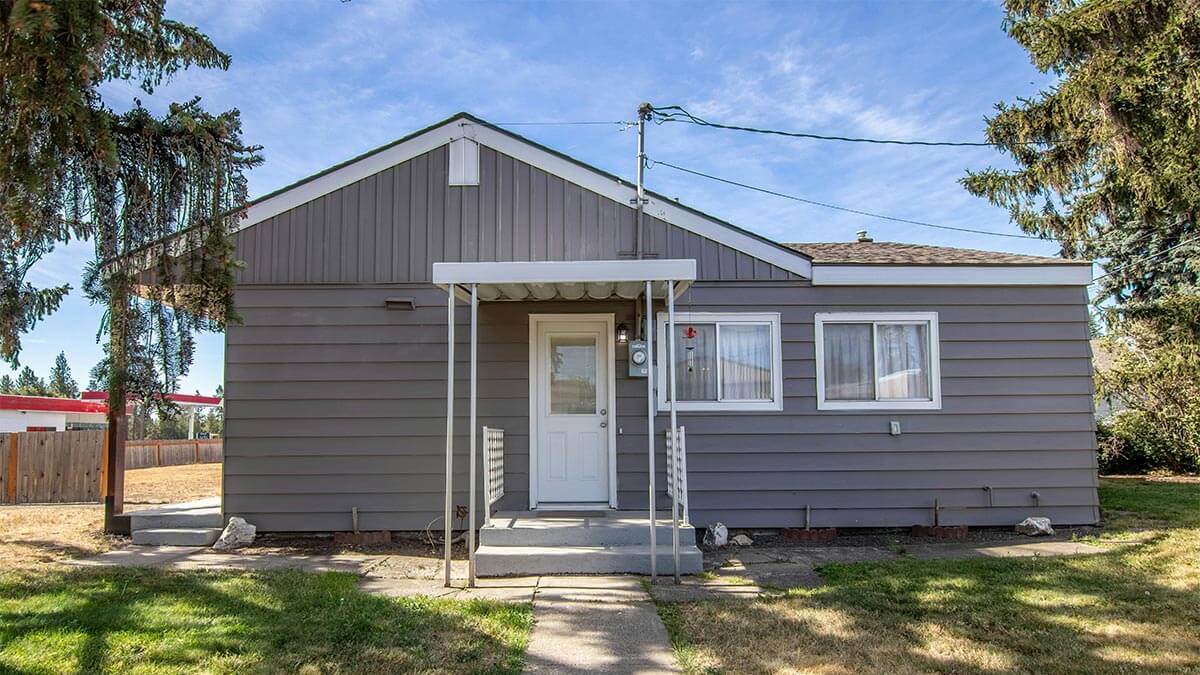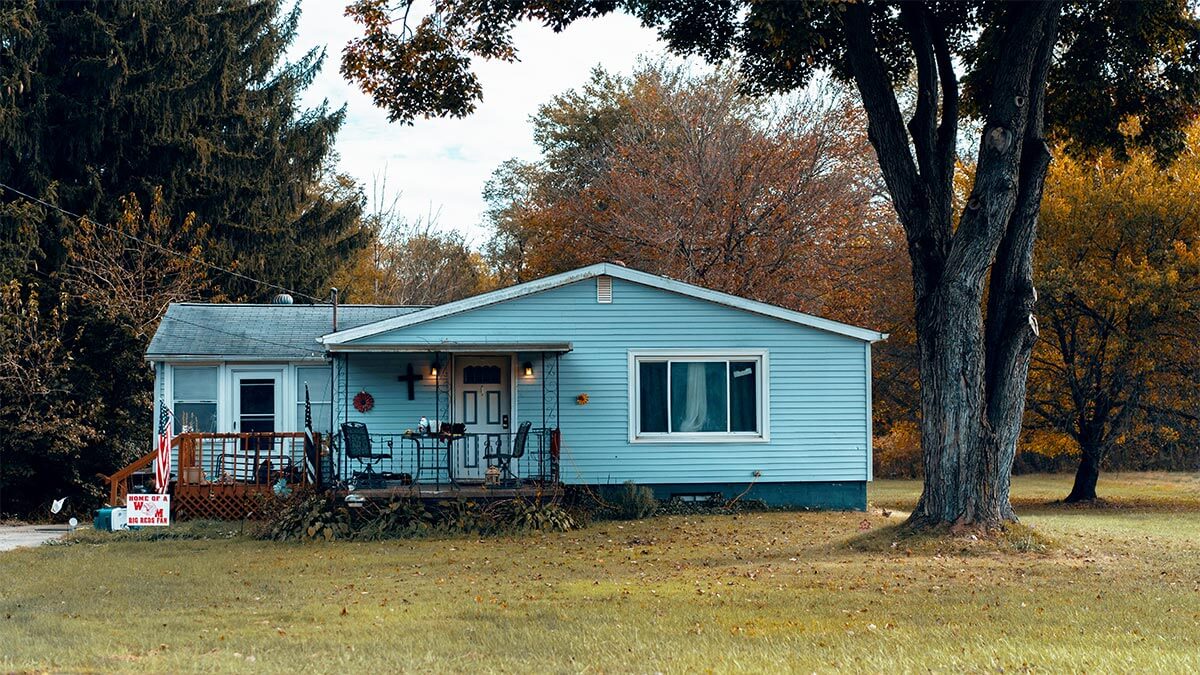Closing costs are fees paid at the end of the home-buying process, which can include loan setups, home inspections, and legal implications. Whether the buyer or seller covers the total or a portion of closing costs varies, but in Texas it’s often the buyer’s responsibility.
This guide will cover what you need to know about closing costs in Texas, including how much you can expect to pay.
If you’re ready to sell your home, iBuyer.com can provide you with an alternative to traditional selling methods. Enter your home address and you can receive multiple cash offers in minutes.
Buyer Closing Costs
Compare Cash Offers from Top Home Buyers. Delivered by Your Local iBuyer Certified Specialist.
One Expert, Multiple Offers, No Obligation.
What Are Buyer Closing Costs in Texas?
Buyer closing costs in Texas typically range from 2% to 6% of the total purchase price. These costs can vary depending on factors such as the type of loan, the value of the home, and specific local fees and regulations. Here is a breakdown of common closing costs for buyers in Texas:
- Loan Origination Fees: Typically around 1% of the loan amount. These fees are charged by the lender for processing the loan.
- Appraisal Fees: Usually between $300 and $500. This fee covers the cost of having the home’s value assessed.
- Title Insurance: Ranges from $200 to $250. Title insurance protects against potential losses due to issues with the property title.
- Land Survey Fees: Starting from $250, this fee covers the cost of verifying the property boundaries.
- Home Inspection Fees: Typically range from $300 to $500. This fee is for a professional inspection to ensure the home is in good condition.
- Attorney Fees: Depending on the complexity of the transaction, these fees can range from $500 to $1,500. Attorneys handle the legal aspects of the home purchase.
- Escrow Fees: These fees, paid to the escrow agent, can vary but are typically around $350.
- Recording Fees: Approximately $25 to $50, these fees are for recording the property transfer with the local government.
- Flood Certification Fees: Around $20 to $30, required if the property is in a flood zone.
- Homeowner’s Association (HOA) Fees: If applicable, these fees can vary widely depending on the community.
- Property Taxes and Homeowner’s Insurance: Buyers often need to prepay these expenses at closing, and the amounts can vary based on the property and location.
To manage these costs, buyers in Texas can negotiate with sellers for credits or concessions, compare loan offers, and explore no-closing-cost mortgage options.
Understanding Closing Costs
Buying a house involves more than just the price you see listed. There are extra costs that come at the end of the buying process. These are known as closing costs.
They are necessary for completing the purchase of your home. Closing costs cover various tasks and services that help ensure everything in your home purchase is done properly and legally.
What Are Closing Costs?
Closing costs are the fees and expenses you pay when you buy a home and get a mortgage. These costs are separate from the price of the home.
They include things like setting up your loan, checking the condition of the house, and handling legal documents. You pay these costs to different people and companies who help make sure your home buying process goes smoothly.
Components of Closing Costs in Texas
In Texas, closing costs include several specific charges. One of the main parts is lender fees. This is money you pay to the bank or company that gives you your mortgage.
They use it to process your loan and do all the paperwork. Another big part is title insurance. This protects you in case there are any problems with the home’s ownership history.
You also pay appraisal fees. This is for a professional to check the value of the home to make sure it’s worth what you’re paying for.
Texas has some unique aspects to its closing costs. For example, the state has certain rules about how much can be charged for some services.
This can affect how much you pay in total. It’s important to understand these costs so you can plan your budget correctly when buying a home in Texas.
Specific Closing Costs Details
When you buy a home, there are many different fees included in the closing costs. These fees cover various parts of the home buying process.
Each type of fee has a specific purpose. Understanding these can help you know what you’re paying for.
Lender Fees
One big part of closing costs is lender fees. These are fees you pay to the bank or company that gives you your mortgage.
Origination fees are for processing your loan application. Credit report fees cover the cost of checking your credit history.
Underwriting fees are for reviewing your loan application and deciding if you qualify for the loan. These fees make sure your loan is set up correctly.
Title-Related Fees
Title-related fees are another important part. These fees are for making sure the home you’re buying is legally available to be sold.
A title search checks the home’s ownership history. Title insurance protects you in case there’s a problem with the home’s title.
Settlement fees are paid to the person who handles the final paperwork for buying the home. These fees help make sure the home is yours legally.
Other Common Fees
There are also other fees you might pay. Appraisal fees are for having a professional check on how much the home is worth.
Survey fees are for checking the property’s boundaries. You might also pay some property tax upfront. These fees cover different parts of making sure the home and property are good to buy.
Who Pays What?
In the process of buying a home, both the buyer and the seller have costs to pay. It’s important to know who pays what. This helps you plan your budget and understand the whole process better.
Buyer’s Responsibility
The buyer usually has several costs to cover. These include lender fees like loan setup and credit report fees.
You also pay for the appraisal of the home and a survey of the land. Title-related fees, like title search and insurance, are also the buyer’s responsibility.
And, you might need to pay some property taxes upfront. These costs are all part of getting your loan and making sure the home is good to buy.
Seller’s Contributions
Sometimes, the seller might pay some of the closing costs. This can happen in different ways. For example, the seller might agree to pay some costs to make the sale happen faster.
Or, if the market favors buyers, sellers might cover more costs to attract buyers. This can be part of the deal when you agree to buy the home.
Negotiating Closing Costs
Buyers can sometimes negotiate closing costs. Here are a few tips. First, understand all the costs and why they are needed.
Then, when you make an offer on a home, you can ask the seller to pay some of the costs. Your real estate agent can help with this.
It’s also a good idea to compare costs from different lenders. Some might offer lower fees. Remember, everything in the home buying process can be talked about. This includes closing costs.
Ways to Lower Closing Costs
Closing costs can be a significant part of your expenses when buying a home in Texas. However, there are several strategies you can use to reduce these costs.
Being proactive and informed can lead to substantial savings, making the home buying process more affordable and less stressful.
Shopping Around for Services
One effective way to lower closing costs is by shopping around for services.
Just like you compare prices when shopping for a car or a phone, you should compare the costs of lenders, title insurance, and other services involved in the home buying process.
Different lenders and service providers offer varying fees and rates, so it pays to do your research.
Start by getting quotes from multiple lenders to compare their loan origination fees and other related charges.
Don’t forget to look into local banks and credit unions, which might offer more competitive rates than larger institutions.
For title insurance, reach out to several companies and compare their rates and the coverage they provide. Even small differences in fees can add up to significant savings.
Negotiating With Lenders
Another way to reduce closing costs is by negotiating with lenders. Many buyers don’t realize that some closing costs are negotiable.
Lenders are often willing to work with you, especially if it means securing your business.
Start by reviewing the Loan Estimate form carefully. This form lists all the fees and charges you’re expected to pay. Identify the fees that seem unusually high or unclear, and don’t hesitate to ask the lender about them.
In some cases, you can negotiate to lower these fees or have them waived entirely.
It’s also worth asking about lender credits. In exchange for accepting a higher interest rate on your mortgage, the lender might offer credits that can be used to offset some of your closing costs.
However, be cautious and calculate whether the long-term cost of a higher interest rate outweighs the immediate savings on closing costs.
No-Closing-Cost Mortgages
No-closing-cost mortgages are another option to consider. These mortgages don’t eliminate closing costs but instead roll them into the loan balance or cover them through a higher interest rate.
This can be appealing if you’re short on cash upfront.
The advantage of a no-closing-cost mortgage is that it reduces the amount you need to pay when you close on your home.
However, it’s important to understand the trade-offs. If the costs are added to your loan balance, it means you’re financing these costs over the life of the loan, which can make your mortgage more expensive in the long run.
If the costs are covered through a higher interest rate, you may end up paying more in interest over the life of the loan.
Whichever route you choose to lower your closing costs, it’s essential to do your homework and understand all the implications of your choices.
By shopping around, negotiating, and carefully considering your options like no-closing-cost mortgages, you can make more informed decisions and save money in the home buying process.
Preparing for Closing Costs
Buying a home is a dream for many, but it comes with various costs that go beyond the price tag of the property.
Closing costs are an essential part of the home buying process in Texas, and preparing for these costs is crucial for a smooth transaction.
Understanding and planning for these expenses can prevent last-minute surprises and financial strain.
Budgeting for Closing Costs
Closing costs in Texas typically range from 2% to 5% of the home’s purchase price. This can be a significant amount, so it’s important to budget for these costs well in advance.
Start by getting a clear estimate of what your closing costs might be. You can ask your lender for a Good Faith Estimate (GFE), which outlines your expected closing costs.
Once you have an estimate, start setting aside money specifically for these costs. You can create a separate savings account for this purpose to avoid the temptation to use the funds for other expenses.
Consider adjusting your budget to cut down on non-essential spending and direct that extra money towards your closing cost savings. It’s also a good idea to save a little more than the estimate, as unexpected expenses can pop up during the home buying process.
Another aspect of preparing for closing costs is understanding each fee you’re required to pay. Common fees include the loan origination fee, appraisal fee, title search, title insurance, and attorney fees.
By understanding these fees, you can better assess which ones might be negotiable or subject to comparison shopping.
Closing Cost Assistance Programs in Texas
Texas offers several assistance programs to help homebuyers with closing costs, especially beneficial for first-time buyers or those with limited financial resources.
The Texas Department of Housing and Community Affairs (TDHCA) provides programs like the My First Texas Home program. This program offers low-interest rate mortgage loans and down payment assistance that can also be used to cover closing costs.
Another program is the Texas State Affordable Housing Corporation (TSAHC), which provides grants and second lien loans to assist with down payment and closing costs.
These programs often have specific eligibility requirements, such as income limits, homebuyer education courses, or property location restrictions.
For veterans, the Texas Veterans Land Board offers land, home, and home improvement loans that often have lower closing costs than traditional loans.
Additionally, local government programs in various Texas cities and counties offer similar assistance for homebuyers.
Researching and applying for these programs can significantly reduce the financial burden of closing costs. Contacting a HUD-approved housing counselor can provide guidance on what programs you might qualify for and how to apply.
Remember, early preparation and thorough research are key to successfully managing closing costs in Texas.
By saving diligently, understanding your fees, and exploring assistance programs, you can navigate the closing process with confidence and ease.
Closing Process in Texas
Buying a home in Texas is exciting, but it also involves a detailed process known as closing. This is the final stage in your home buying journey.
Understanding the closing process in Texas can help you prepare for what lies ahead, ensuring a smoother transition to becoming a homeowner.
Steps in the Closing Process
The closing process in Texas starts long before you sit down to sign the final documents. It begins with your offer being accepted by the seller.
Once this happens, the next step is loan approval. This is when your lender reviews all your financial information and approves the mortgage that you’ll use to buy the house.
After your loan approval, you’ll need to handle the home inspection. This is a crucial step where a professional checks the house for any problems.
They look at things like the electrical system, plumbing, and the structure of the house. If they find any issues, you can ask the seller to fix them before you buy the house.
Then comes the title search. This process involves checking the history of the house to ensure the seller really owns it and that there are no legal claims against it.
It’s important because it protects you from buying a home that might have hidden legal problems.
You’ll also need to buy title insurance. This insurance protects you if any issues with the property’s title are found after you buy the house.
It’s a safety net against potential legal problems in the future.
The next step is preparing for the closing day. This involves a lot of paperwork. You’ll be reviewing and signing documents related to your mortgage, the transfer of the property, and various other legal aspects of the purchase.
It’s important to read these documents carefully and ask questions if you don’t understand something.
Finally, you reach the closing day. This is when you sign all the official documents, pay the closing costs, and officially become the owner of the house. It’s a big day and marks the end of your home buying process.
Timeline for Closing
The timeline for closing on a house in Texas can vary. On average, it takes about 30 to 45 days from the time your offer is accepted until closing day.
This time frame allows for all the necessary steps to be completed properly. However, the timeline can be shorter or longer depending on various factors.
For example, if your loan is approved quickly and there are no issues with the house or title, the process can be faster. On the other hand, if there are problems found during the home inspection or with the title, it could take longer.
It’s important to stay in close communication with your real estate agent and lender throughout this process.
They can provide updates and help you understand what needs to be done at each step. Planning for about a month to a month and a half for the closing process is a good rule of thumb.
It gives you enough time to handle everything carefully and ensures that you’re ready for the big day when you finally get the keys to your new home.
Case Studies/Real-Life Examples
When buying a home, everyone’s experience is a bit different. Hearing stories from real buyers can give you a better idea of what to expect. Here are a couple of stories from Texas homebuyers.
Buyer Experiences
First, let’s talk about Sarah and Mike from Houston. They were first-time homebuyers. They found a nice house listed for $250,000. During the closing process, they were surprised by the closing costs.
They had saved for their down payment but didn’t realize closing costs would be an extra 3% of the home’s price. This meant they needed another $7,500.
They had to quickly use some of their emergency savings. But in the end, they were happy to get their new home.
Then there’s Carlos from Austin. He was buying his second home. This time, he was more prepared for closing costs.
He negotiated with the seller, who agreed to pay half of the closing costs. This saved Carlos thousands of dollars.
He also shopped around for a mortgage and found a lender with lower fees. Carlos’s experience shows how planning and negotiating can really help.
These stories from Texas buyers show different sides of the process. Saving enough for closing costs is important, just like knowing you can talk about these costs with sellers and lenders.
Estimated Closing Costs for a Buyer in Texas
Now you know all about the estimated closing costs for a buyer in Texas.
By budgeting, shopping around for services, negotiating with lenders, and exploring assistance programs, you can significantly reduce closing costs.
Being well-informed and proactive ensures a more affordable and stress-free journey to homeownership.
And if you have any other questions related to buying and selling a home, we can help.
Our site has a ton of great resources, plus you can also enter your home address to get your home value and get a cash offer to sell your house!
Instant Valuation, Confidential Deals with a Certified iBuyer.com Specialist.
Sell Smart, Sell Fast, Get Sold. No Obligations.
FAQs About Buyer Closing Costs
When it comes to closing costs in Texas, many people have questions. It’s a big part of buying a home. Here are answers to some common questions.
In Texas, closing costs are usually between 2% to 5% of your loan amount.
So, if your loan is for $200,000, your closing costs might be between $4,000 and $10,000. But this can change based on things like where the home is and what kind of loan you get.
Usually, the buyer pays most of the closing costs. But sometimes, the seller might pay some as part of the deal.
This can be talked about when you make an offer on the home.
Yes, you can. You can talk to your lender about lowering some fees.
You can also compare prices from different lenders and services. This can help you find the best deal for your budget.
Reilly Dzurick is a seasoned real estate agent at Get Land Florida, bringing over six years of industry experience to the vibrant Vero Beach market. She is known for her deep understanding of local real estate trends and her dedication to helping clients find their dream properties. Reilly’s journey in real estate is complemented by her academic background in Public Relations, Advertising, and Applied Communication from the University of North Florida.




